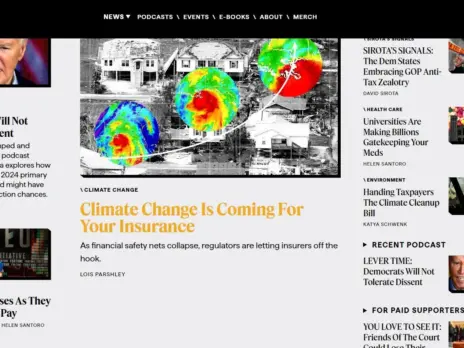
The head of the UK’s “fake news” inquiry has said democracy is facing a crisis brought about by “campaigns of disinformation and messages of hate” targeted at citizens.
Damian Collins MP issued the stark warning as the Department for Digital, Culture, Media and Sport Committee today published its first report since launching the inquiry in January last year.
Collins, the DCMS Committee’s chairman, said what had been discovered so far through the inquiry was only the “tip of the iceberg”.
He said: “We are facing nothing less than a crisis in our democracy – based on the systematic manipulation of data to support the relentless targeting of citizens, without their consent, by campaigns of disinformation and messages of hate.”
As well as outlining its concerns, the committee set out a series of major reforms to help tackle the issue, including making tech companies liable for sharing “harmful and misleading material”.
It recommends creating a new category of tech company, neither platform nor publisher, which “tightens” tech companies’ liabilities.
The committee said: “This process should establish clear legal liability for the tech companies to act against harmful and illegal content on their platforms.
“Tech companies are not passive platforms on which users input content – they reward what is most engaging, because engagement is part of their business model and their growth strategy.
“They have profited greatly by using this model. This manipulation of the sites by tech companies must be made more transparent.”
“Just as the finances of companies are audited and scrutinised, the same type of auditing and scrutinising should be carried out on the non-financial aspects of technology companies, including their security mechanisms and algorithms, to ensure they are operating responsibly.”
The committee said it anticipated that these proposals would be put forward in a Government White Paper later this year.
The committee also recommended:
- Imposing a levy on tech companies to fund a “comprehensive media educational framework” and the “expanded work” of the Information Commissioners Office
- Changing the rules on political campaigning for more transparency, including creating a public register for political advertising and banning “micro-targeted” political ads on platforms
- Commission the Competition and Market Authority to carry out an audit of fake accounts on social media sites such as Facebook and Twitter
- Establishing a Digital Atlantic Charter that would create a “formal basis for collaboration with the US on this issue”.
The committee said the charter would be voluntary, but underpinned by a framework setting out the legal obligations in signatory countries.
“This would help ensure alignment, if not in law, then in what users can expect in terms of liability and protections,” they said.
All of the major tech giants – Facebook, Twitter, Google etc. – are based in the US.
The Committee’s final report, which will also include further conclusions on other aspects of disinformation, is expected before the end of the year.
Tory MP Collins said: “In this inquiry we have pulled back the curtain on the secretive world of the tech giants, which have acted irresponsibly with the vast quantities of data they collect from their users.
“Despite concerns being raised, companies like Facebook made it easy for developers to scrape user data and to deploy it in other campaigns without their knowledge or consent.
“Throughout our inquiry these companies have tried to frustrate scrutiny and obfuscated in their answers. The light of transparency must be allowed to shine on their operations and they must be made responsible, and liable, for the way in which harmful and misleading content is shared on their sites.
“We heard evidence of coordinated campaigns by Russian agencies to influence how people vote in elections around the world. This includes running adverts through Facebook during elections in other countries and in breach of their laws.
“Facebook failed to spot this at the time, and it was only discovered after repeated requests were made for them to look for evidence of this activity. Users were unaware that they were being targeted by political adverts from Russia, because they were made to look like they came from their own country, and there was no information available at all about the true identity of the advertiser.
“I believe what we have discovered so far is the tip of the iceberg.
“There needs to be far greater analysis done to expose the way advertising and fake accounts are being used on social media to target people with disinformation during election periods.
“The ever-increasing sophistication of these campaigns, which will soon be helped by developments in augmented reality technology, make this an urgent necessity.
“Data crimes are real crimes, with real victims. This is a watershed moment in terms of people realising they themselves are the product, not just the user of a free service. Their rights over their data must be protected.”
Picture: Pixabay
Email pged@pressgazette.co.uk to point out mistakes, provide story tips or send in a letter for publication on our "Letters Page" blog






